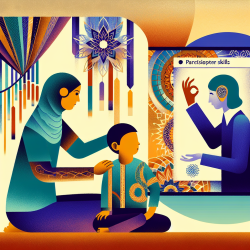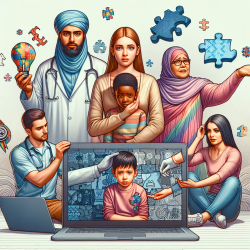Introduction
In the realm of public health, addressing violence against adolescent girls, particularly in refugee settings, is a critical challenge. A recent study titled "Preventing violence against refugee adolescent girls: findings from a cluster randomised controlled trial in Ethiopia" provides valuable insights into how interventions can be structured to improve outcomes for this vulnerable group.
The Study: An Overview
The study conducted by Columbia University and the International Rescue Committee (IRC) focused on the efficacy of the Creating Opportunities through Mentorship, Parental Involvement, and Safe Spaces (COMPASS) program. This intervention aimed to reduce experiences of interpersonal violence among Sudanese and South Sudanese girls aged 13-19 residing in refugee camps in Ethiopia.
Key Findings
While the intervention did not significantly reduce exposure to sexual violence within the 12-month timeframe, it positively impacted attitudes towards rites of passage and enhanced social support indicators. Notably, there was a decrease in child marriage among girls who were married at baseline.
Implications for Practitioners
For practitioners working with refugee populations, these findings underscore the importance of focusing on social support and empowerment strategies. Here are some actionable insights:
- Implement life skills programs that emphasize building social networks and reshaping gender attitudes.
- Incorporate safe spaces and mentorship opportunities to foster a supportive environment for adolescent girls.
- Engage caregivers and community leaders to amplify the intervention's impact through policy changes and broader social norms.
Encouraging Further Research
The study highlights the complexities of conducting randomized controlled trials in humanitarian settings and suggests that outcome measures may need to be tailored to align with realistic timelines. Practitioners are encouraged to engage in further research to explore innovative strategies that address the unique challenges faced by refugee adolescent girls.
Conclusion
While the COMPASS program did not achieve all its intended outcomes within the study period, it provides a foundation for future interventions. By focusing on empowerment and social support, practitioners can contribute to creating safer environments for refugee girls.
To read the original research paper, please follow this link: Preventing violence against refugee adolescent girls: findings from a cluster randomised controlled trial in Ethiopia.










